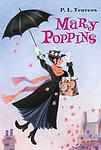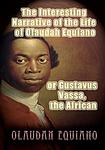The Greatest Non-Western Books of All Time
Click to learn how this list is calculated.
This list showcases a comprehensive and trusted collection of the greatest books from Non-Western literature. Curated through a specialized algorithm, it amalgamates 300 'best of' book lists to present a definitive guide to essential literary works from Asia, Africa, the Middle East, Latin America, and beyond. This selection celebrates the diverse and vibrant literary traditions of the world, offering readers a window into a myriad of fascinating narratives and perspectives. For more information on how these books are selected, please visit the rankings page.
Genres
Date Range
Reading Statistics
Click the button below to see how many of these books you've read!
Download
If you're interested in downloading this list as a CSV file for use in a spreadsheet application, you can easily do so by clicking the button below. Please note that to ensure a manageable file size and faster download, the CSV will include details for only the first 500 books.
Download-
101. Mary Poppins by PL Travers
In this beloved classic, a magical and enigmatic nanny named Mary Poppins arrives at the Banks' household to care for their mischievous children. With her peculiar and extraordinary abilities, Mary Poppins takes the children on whimsical adventures, teaching them valuable life lessons along the way. As the family learns to appreciate the wonder and joy in everyday life, Mary Poppins proves that even the most ordinary moments can be extraordinary.
-
102. The Lonely Londoners by Sam Selvon
"The Lonely Londoners" is a novel that explores the lives of a group of West Indian immigrants living in London during the 1950s. The narrative follows the characters as they navigate the challenges of racism, poverty, and isolation in a new and unfamiliar environment. Despite their hardships, the characters also experience moments of camaraderie and humor, providing a nuanced portrayal of the immigrant experience.
-
103. The Labyrinth of Solitude by Octavio Paz
This book is a profound and vivid exploration of Mexico's character, culture, and identity. The author delves into Mexico's history, politics, and psyche, examining the country's deep solitude and its impact on the national character. The book provides a comprehensive analysis of Mexican society, its myths, symbols, and rituals, offering a deep understanding of the Mexican people's unique way of perceiving the world. It also discusses the influence of the United States on Mexico and the complex relationship between the two countries.
-
104. Don Segundo Sombra by Ricardo Güiraldes
This classic Argentine novel is a coming-of-age story set in the Pampas, focusing on the life of a young orphan who finds guidance and mentorship under the wing of a seasoned gaucho named Segundo Sombra. Through his experiences in the vast landscapes of rural Argentina, the protagonist learns the values of courage, responsibility, and freedom, embodying the gaucho spirit. The narrative, rich in poetic imagery and symbolism, explores themes of identity, tradition, and the passage into adulthood, offering a deep reflection on the essence of Argentine culture and the timeless bond between man and nature.
-
105. July's People by Nadine Gordimer
"July's People" is a novel set in a hypothetical future where South Africa's apartheid system has collapsed and the nation is embroiled in a brutal civil war. The story follows a liberal white family who, fleeing the violence, are taken in by their black servant, July, in his rural village. The book explores the power dynamics and complexities of their relationship, as they navigate this new reality where traditional roles are reversed, and grapple with issues of race, class, and privilege.
-
106. Heat and Dust by Ruth Prawer Jhabvala
"Heat and Dust" is a novel set in two different time periods in India, exploring themes of colonialism, gender roles, and cultural clash. The story alternates between the 1920s, following the scandalous life of Olivia, an English colonial wife who falls in love with an Indian prince, and the 1970s, where her step-granddaughter journeys to India to uncover the truth about Olivia's life and her own identity. The narrative exposes the complexities of love, culture, and identity in the context of British colonial rule and post-colonial India.
-
107. Untouchable by Mulk Raj Anand
"Untouchable" is a novel that explores a day in the life of a young Indian man, Bakha, who belongs to the lowest caste, the Untouchables. The narrative follows Bakha's experiences of extreme discrimination and humiliation as he performs his job as a latrine cleaner. Despite the harsh realities of his life, Bakha dreams of a better future and is fascinated by the modern world and British rule. The novel provides a poignant critique of the caste system and the social inequalities in India.
-
108. The Water Margin: Outlaws of the Marsh by Shi Naian
"The Water Margin: Outlaws of the Marsh" is a classic Chinese novel set during the Song dynasty, revolving around 108 outlaws who gather at Mount Liang to form a sizable army. The narrative explores themes of rebellion, loyalty, and justice, as these bandits challenge the corrupt and oppressive government. Despite their status as outlaws, they follow a strict code of honor and righteousness, often assisting the poor and the weak. The book is a blend of history, folklore, and mythology, offering a vivid portrayal of the political and social dynamics of the era.
-
109. Kokoro by Sōseki Natsume
"Kokoro" is a novel that delves into the complexities of human relationships and the changing cultural climate of Japan at the turn of the 20th century. The story is narrated by a young university student who forms an unlikely friendship with an older man, referred to only as "Sensei". As their bond deepens, the young man learns of Sensei's tragic past, his feelings of guilt and regret, and his struggle to find peace. The novel explores themes of loneliness, betrayal, and the moral dilemmas of modern life.
-
110. Silence by Shūsaku Endō
"Silence" is a historical novel set in the 17th century, which follows a Portuguese Jesuit missionary who travels to Japan to comfort local Christians and find his mentor, who is rumored to have renounced his faith. The protagonist experiences the brutal persecution of Christians by the Japanese government, and grapples with the silence of God in the face of suffering. The narrative explores themes of faith, doubt, cultural clash, and the human capacity for both cruelty and endurance.
-
111. The Book of Job by Unknown
"The Book of Job" is a profound biblical narrative that explores the themes of faith, suffering, and divine justice. It tells the story of Job, a prosperous and righteous man who experiences immense suffering as he loses his wealth, children, and health. Despite his trials, Job maintains his faith in God, engaging in intense dialogues about human suffering and divine justice. The story concludes with God restoring Job's fortunes and blessing him more abundantly than before, demonstrating the inscrutable nature of divine wisdom and the rewards of unwavering faith.
-
112. The Palm Wine Drinkard And His Dead Palm Wine Tapster In The Dead's Town by Amos Tutuola
This novel follows the surreal and fantastical journey of an African man with an insatiable thirst for palm wine, who, after the death of his skilled tapster, embarks on a quest to the land of the dead in hopes of bringing him back to the world of the living. Along the way, he encounters a myriad of bizarre and supernatural obstacles, including ghosts, witches, and other mythical creatures, each presenting their own challenges and moral lessons. The narrative, rich with the oral tradition of Nigerian folklore and written in a distinctive pidgin English, weaves a tale that explores themes of desire, loss, and the intersection of the living and the spiritual realms.
-
113. The Pillow Book by Sei Shōnagon
"The Pillow Book" is a collection of personal observations, anecdotes, and reflections by a woman in the Heian court of Japan. It presents a detailed and vivid picture of court life, including the lavish ceremonies, the rivalries and intrigues, the idle pastimes of the courtiers, and the romantic escapades of the empress and her consorts. The book also contains lists, poetry, and personal musings, providing a unique perspective on the culture and customs of the Heian period.
-
114. Children of Gebelawi by Naguib Mahfouz
"Children of Gebelawi" is a novel that allegorically presents the stories of Moses, Jesus, and Mohammed through the lives of characters in a Cairo neighborhood. The patriarch, Gebelawi, has five children, each representing a different prophet or religious figure, and their struggles mirror the religious and philosophical conflicts of the 20th century. The book explores themes of power, faith, and redemption, and it sparked controversy upon publication due to its portrayal of sacred figures.
-
115. I, Rigoberta Menchú: An Indian Woman in Guatemala by Rigoberta Menchú Tum
This book is an autobiographical account of a woman who grew up in a small village in Guatemala during a time of extreme political turmoil. Despite facing poverty, racism, and violence, she becomes a prominent activist for indigenous rights. Her story provides a firsthand account of the hardships and injustices faced by the indigenous people in Guatemala, and her tireless fight for their rights eventually leads her to win the Nobel Peace Prize.
-
116. The Blind Owl by Ṣādiq Hidāyat
"The Blind Owl" is a haunting narrative that delves into the psyche of a tormented artist who is grappling with love, loss, and existential dread. The protagonist is a reclusive painter of pen cases who is haunted by the image of a mysterious woman, leading him down a spiral of obsession and madness. The story unfolds in a dreamlike narrative, blurring the lines between reality and illusion, and is steeped in Persian mysticism and symbolism. The novel explores themes of alienation, death, and the fragility of the human condition.
-
117. Clear Light of Day by Anita Desai
"Clear Light of Day" is a novel set in Old Delhi, which explores the dynamics of the Das family. The story shifts back and forth in time, reflecting on the lives of siblings Bim, Raja, Baba, and Tara, and their relationships with each other and their aunts. The narrative delves into themes of memory, time, and decay, as well as the political upheaval of the Partition of India. The novel is a poignant study of family relationships, personal change, and loss.
-
118. Palace Walk by Naguib Mahfouz
The novel is set in Cairo during World War I and revolves around the life of a conservative Muslim family. The patriarch, a shopkeeper, has two wives and several children, and the story explores the dynamics within the family, particularly the tyrannical father's relationships with his wives and children. As the family navigates through a changing society, they encounter various challenges including political unrest, societal norms, and the struggle between tradition and modernity.
-
119. A Dry White Season by Andre Brink
Set in apartheid-era South Africa, "A Dry White Season" follows the story of Ben Du Toit, a white schoolteacher who becomes involved in the fight against the system after his gardener's son is brutally beaten by the police. As he delves deeper into his quest for justice, he becomes increasingly isolated from his community and his family, and ultimately pays the highest price for his convictions. The novel is a powerful exploration of the devastating effects of racial injustice and the courage it takes to stand against it.
-
120. The Recognition of Sakuntala by Kālidāsa
"The Recognition of Sakuntala" is an ancient Indian play that tells the story of a beautiful woman named Sakuntala who lives in a hermitage and falls in love with King Dushyant. After a series of misunderstandings and a curse that causes the king to forget Sakuntala, the two are eventually reunited when a fisherman finds the royal signet ring that Dushyant gave Sakuntala, leading to her recognition. The play is a classic example of the Indian dramatic tradition, with its mix of romance, comedy, and elements of the supernatural.
-
121. Second-class Citizen by Buchi Emecheta
"Second-Class Citizen" is a poignant narrative about a young Nigerian woman, Adah, who dreams of getting an education and moving to the United Kingdom. Despite cultural and societal obstacles, Adah manages to achieve her dream but is met with more hardship as she faces racial discrimination, an abusive marriage, and the struggle of raising five children in a foreign land. Through her resilience, she continues to strive for a better life, depicting the struggles of immigrants and the strength of women.
-
122. Conversation in the Cathedral by Mario Vargas Llosa
Set in mid-20th century Peru, "Conversation in the Cathedral" is a complex narrative that explores the corruption, decay, and turmoil of the society under the dictatorial rule of Manuel A. Odria. The story mainly revolves around two characters - a wealthy newspaper owner's son and his family's former chauffeur. Their chance meeting leads to a lengthy conversation that unravels the intricate web of political and personal corruption, disillusionment, and lost dreams in their lives and in their country. The novel is a profound examination of the power dynamics, societal decay, and the human condition in a politically oppressive environment.
-
123. Long Walk To Freedom by Nelson Mandela
"Long Walk to Freedom" is a powerful autobiography that chronicles the extraordinary life of Nelson Mandela. From his humble beginnings in a rural village to becoming the first black president of South Africa, Mandela's journey is one of resilience, determination, and unwavering commitment to justice and equality. Through his personal experiences, he provides a vivid account of the struggle against apartheid, his 27 years of imprisonment, and the eventual triumph of democracy. This book serves as an inspiring testament to Mandela's unwavering spirit and his lifelong fight for freedom and human rights.
-
124. Kafka's Other Trial by Elias Canetti
This book is a detailed examination and interpretation of the correspondence between a renowned author and his fiancée, Felice Bauer. The author uses these letters to analyze the writer's psyche, his relationships, and his work. The book provides a unique insight into the author's life and the influence of his engagement on his writing, particularly his novel "The Trial". The author's struggle between his commitment to writing and his relationship with Felice forms the central theme of the book.
-
125. The Interesting Narrative of the Life of Olaudah Equiano by Olaudah Equiano
This autobiographical book tells the story of an African man who was kidnapped from his homeland as a child and sold into slavery. The narrative follows his life as he is transported across the Atlantic, sold to various masters, and eventually purchases his own freedom. The book provides a detailed account of the horrors of the Middle Passage and the inhumane conditions of slavery, while also serving as a powerful testament to the human spirit's ability to overcome adversity.
Reading Statistics
Click the button below to see how many of these books you've read!
Download
If you're interested in downloading this list as a CSV file for use in a spreadsheet application, you can easily do so by clicking the button below. Please note that to ensure a manageable file size and faster download, the CSV will include details for only the first 500 books.
Download























